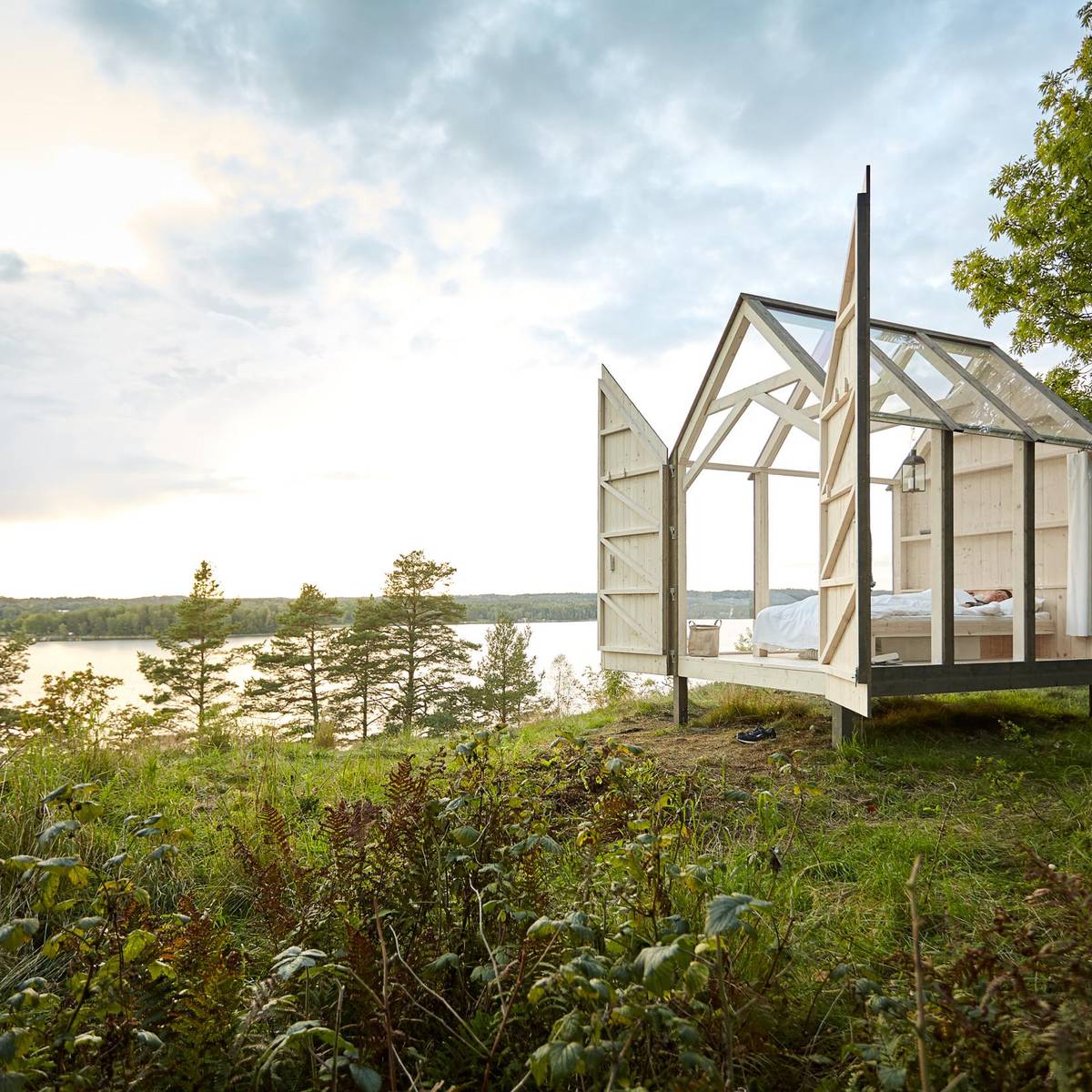
About the 72 Hour Cabin case study and the results
In September 2017, Sweden teamed up with leading researchers in the field of stress, to study the health effects of the lifestyle within Swedish nature.

In September 2017, Sweden teamed up with leading researchers in the field of stress, to study the health effects of the lifestyle within Swedish nature.
The case study was developed in collaboration with two leading stress researchers, Walter Osika and Cecilia Stenfors, also at the Karolinska Institute in Stockholm; one of the world’s foremost medical universities.
For three days, five people with some of the world’s most stressful jobs – among them a French Taxi driver, a German Police Officer and a British Broadcaster – got to swap their urban lives for an off-the-grid experience on Henriksholm Island in Western Sweden. They lived in custom-made glass cabins and got involved in common Swedish outdoor activities, such as fishing, swimming and cooking of the grid.
After 72 hours, they all showed a significant decrease in systolic blood pressure. Additionally, there was a drop in heart rate, and an increase in well-being and even creativity. Walter Osika, Researcher in Stress and also Associate Professor at Karolinska Institutet:
"I am positively surprised by the results and it shows that a Swedish ‘close to nature’ lifestyle can improve people’s well-being, at least in a short run. We saw a 70 percent decrease of stress, which is considerable"
Walter Osika, Associate Professor at Karolinska Institutet
A combination of qualitative and quantitative methods were used in the case study in order to get a comprehensive picture of the participant’s well-being. Their values were measured when they arrived at the location of the case study and followed up after 72 hours.
The participant’s blood pressure and heart rate were measured with a sphygmomanometer after five minutes of rest in a sitting position. They also got to do a self-assessment test where the status of their current well-being and connection to nature was examined. A remote associates test was carried out to study their problem-solving ability and creativity (creativity is always tricky to measure, but this is one of the “standard” ways of doing it).
During the 72 hours, the participants also filled out a semi-structured diary every evening, describing their emotions, thoughts and relationships to the nature surrounding them. All in all, this gave an overview of the effects of 72 hours in Swedish nature.
As this was not a scientific study per se, no control group was studied. Results should therefore be seen more as an illustration of earlier research.

Wristband used during The 72 Hour Cabin
Photo: Jonas Ingman
The results underpin the positive effects of a ‘close-to-nature’ lifestyle that is so liked by Swedes. And as our lives are getting busier, the need for relaxation and destressing moments are more important than ever - all over the world.
All in all, the results showed a strong indication of the positive effects of a ‘close-to-nature’ lifestyle that is so prevalent in Sweden. With this case study, Sweden now wants to share learnings around the Swedish way of living close to nature. Also, that natural experiences don’t have to be difficult for us to embrace.
In Sweden, it’s all about finding greatness in the little moments in nature, and to make nature a natural part of everyday life. Hopefully, this case study can inspire further studies about the importance of the relationship between human and nature. Because we believe nature can help us discover our human nature.

The 72 Hour Cabin in Dalsland, West Sweden.
Photo: Jonas Ingman/Westsweden.com